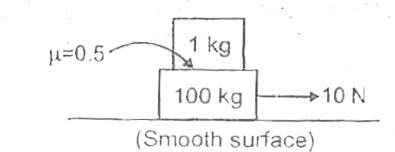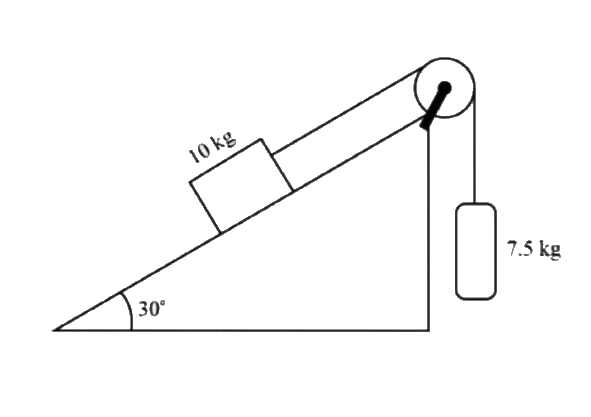A small block of mass 1 kg is a circular are of ratius 40 m . The block sides along the track without topping and a frictionnal force acts on it in the direction opposite in the instrmens velocity . The work done in evercoming the friction up to the point Q as shown is the figure below is 150J
(Take the acceleration due to gravity g=10ms−2)
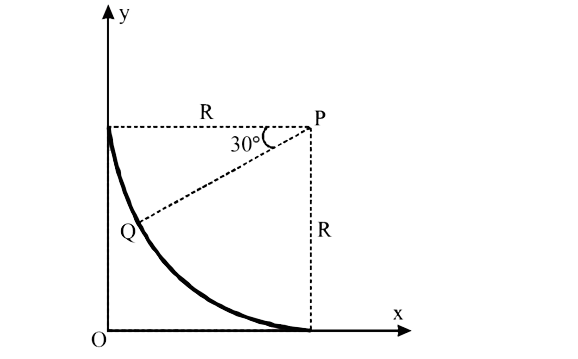
The speed of the block when it reaches the point Q is
5ms−1
10ms−1
10√3ms−1
20ms−1
The correct Answer is:B
from (2)mv2=100∵v=10ms−1
(b) in the correct option
Topper's Solved these Questions
Similar Questions
Knowledge Check
A small block of mass 1 kg is a circular are of ratius 40 m . The block sides along the track without topping and a frictionnal force acts on it in the direction opposite in the instrmens velocity . The work done in evercoming the friction up to the point Q as shown is the figure below is 150J
(Take the acceleration due to gravity g=10ms−2)
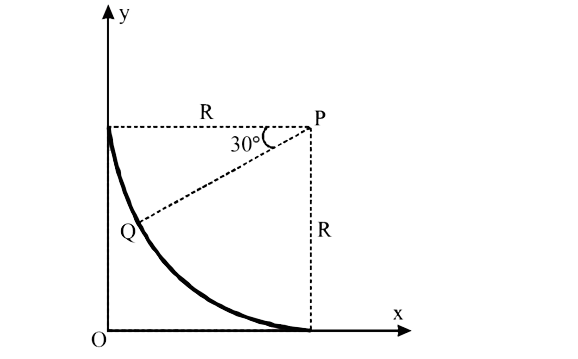
The magnitude of the normal reaction that acts on the block at the point Q isA7.5NB8.6NC11.5 ND22.5NAs shown in the figure , the friction force acting on the block is
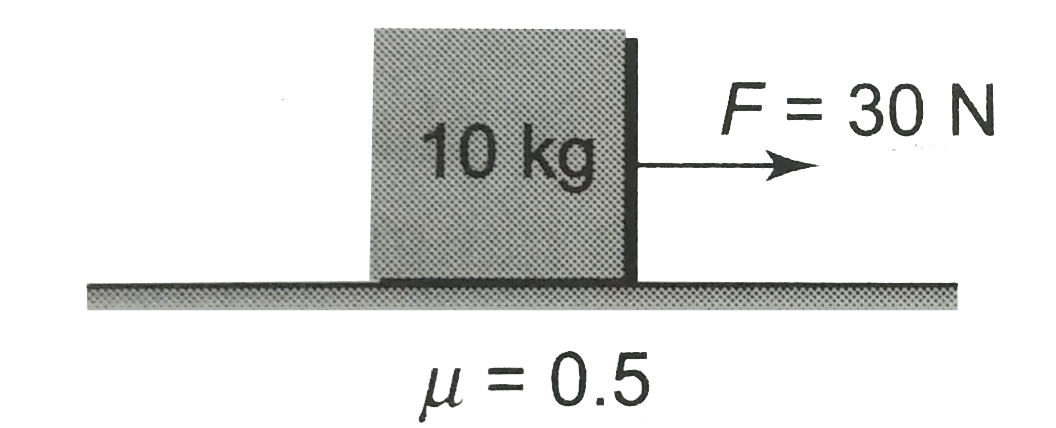 A50NB30NC20NDNone
A50NB30NC20NDNoneIf the mass of block is 1 kg and a force of 10 / √3 N is applied horizontally on the block as shown in the figure . The frictional force acting on the block is :
 AzeroB10√3NC20√3ND5 N
AzeroB10√3NC20√3ND5 N
A block of mass 6 kg is kept on rough surface as shown in figure. Find acceleration and friction force acting on the block. (Take g=10m/s2)
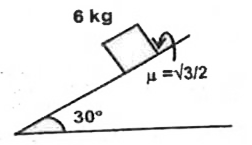
View SolutionA small block of mass 1kg is kept on a rough inclined wedge of inclination 45∘ fixed in an elevator. The elevator goes up with a uniform velocity v=2m/s and the block done not slide on the wedge. Find the work done by the of friction on the block in 1s. (g=10m/s2)
View SolutionA small cube of mass m slides down a circular path of radius R cut into a large block of mass M. M rests on a table and both blocks move without friction. The blocks initially are at rest and m starts from the top of the path. Find the velocity v of the cube as it leaves the block.
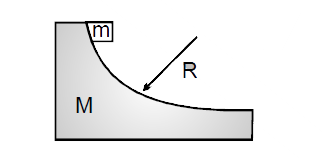
View SolutionIn the figure shown, block of mass 2 kg is very long. Force of friction on 1 kg block is
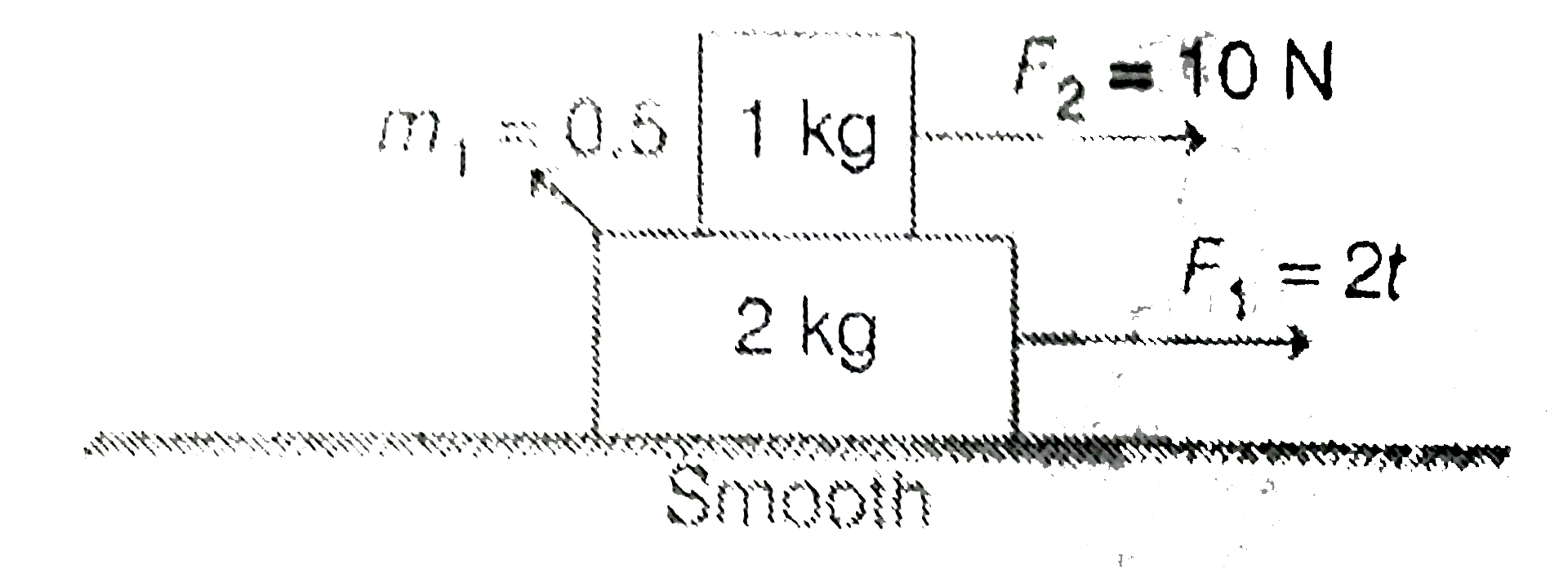
View SolutionA block of mass 2kg slipped up a slant plane requires 300J of work. If height of slant is 10m the work done against friction is :
View Solution

